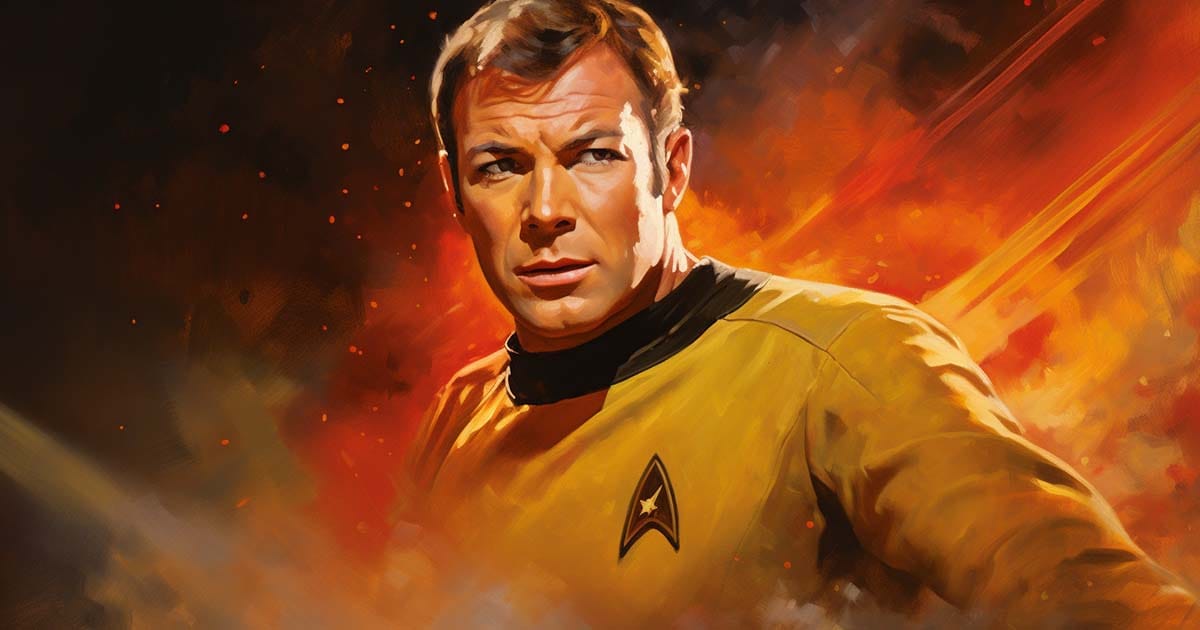Captain Kirk's Embodiment of Traditional American Masculine Ideals in a Futuristic Universe
Explore Captain Kirk's leadership and sacrifice in 'Star Trek,' embodying traditional American masculine ideals in a futuristic universe.

The "Star Trek" franchise, created by Gene Roddenberry, has long been celebrated for its visionary portrayal of a future where humanity has transcended many of its present-day limitations and prejudices.
Central to this portrayal is the character of Captain James T. Kirk of the USS Enterprise.
This essay examines how Kirk, as a character in the original "Star Trek" series, embodies traditional American masculine ideals within this futuristic setting, focusing on his leadership style and his approach to sacrifice.
Leadership
Captain Kirk's leadership style is a blend of charisma, decisiveness, and a willingness to take risks, traits often associated with traditional American masculinity.
He frequently makes decisions in high-pressure situations that require a rapid assessment of complex scenarios. This decisiveness is a hallmark of his command style, often leading to successful outcomes in dire situations. Decisiveness is sorely lacking in modern American society.
Moreover, Kirk's charismatic leadership style inspires loyalty and respect from his crew. He leads not just through orders, but by example, often being at the forefront of dangerous missions. This approach aligns with the American ideal of the brave, front-line leader who is not afraid to face the same challenges as his team.
Sacrifice in the Line of Duty
Kirk's readiness to make sacrifices for the greater good is another aspect of his embodiment of traditional masculine ideals.
The concept of sacrifice in "Star Trek" often revolves around the safety of the Enterprise's crew, the protection of vulnerable civilizations, or the broader interests of the United Federation of Planets. Kirk demonstrates a willingness to put himself in harm's way to protect others, a trait synonymous with traditional heroism and masculinity.
This sense of sacrifice is vividly portrayed in episodes where Kirk faces moral dilemmas that challenge his personal ethics versus the needs of the many. The decisions he makes often reflect a deep sense of duty and a willingness to bear personal costs for the welfare of others, a trait that resonates with the American ideal of selflessness in leadership. This is something we should be teaching our sons.
Kirk's Masculinity in a Futuristic Context
What makes Kirk's embodiment of traditional masculine ideals particularly interesting is the futuristic context in which he operates. "Star Trek" is set when humanity is part of a vast, interstellar community with diverse species and cultures.
In this context, Kirk's traditional masculinity could have been an anachronism. However, the series skillfully integrates these traits into the futuristic narrative, making Kirk's style of leadership and approach to sacrifice relevant and effective. This concept is something we need more of in modern science fiction. We want and need more masculine characters, demonstrating how vital strong men are to the health of any society.
Kirk's interactions with alien cultures often highlight his adherence to these ideals, even when they contrast with the norms of these societies. His respect for diverse cultures and species, combined with his distinctly human, masculine qualities, creates a unique leadership profile that is effective across a wide range of scenarios in the "Star Trek" universe.
In Brief
Captain James T. Kirk of the "Star Trek" series stands as a compelling figure who embodies traditional American masculine ideals within a futuristic universe. His leadership style—marked by charisma, decisiveness, and a willingness to take risks—alongside his readiness to make personal sacrifices for the greater good, aligns with traditional American perceptions of masculinity. These traits, portrayed in a futuristic and interstellar context, demonstrate the enduring appeal and relevance of such ideals, even in a speculative future.
Kirk's character offers a nuanced perspective on how traditional masculinity can evolve and adapt to meet the challenges of a rapidly changing world. "Star Trek," through Captain Kirk, not only entertains but also invites its audience to reflect on the nature of leadership and sacrifice in a future that holds endless possibilities.

